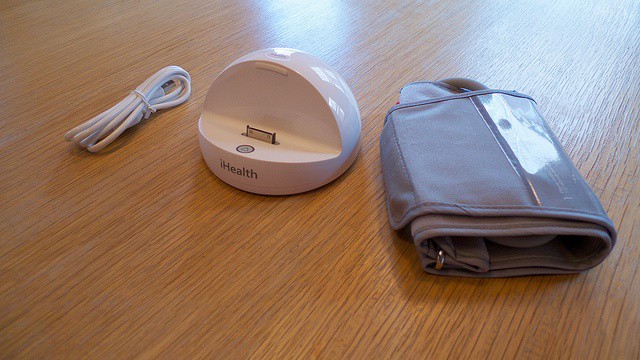Proteus Digital Health has created a new medication smart sensor that you can eat. Combined with a wearable patch, the system can track the time at which the patient takes their medication, and can also monitor vital health information such as the patient’s temperature, heart rate, and activity levels.
The smart sensor is embedded in the patient’s medication, and is activated when the patient swallows the pill with the sensor inside. Information from both the patch and the sensor is combined and output to a smartphone app that can be used by the patient, their doctor, or another caregiver such as a family member.
What Problem is the Health Sensor Trying to Fix?

The two primary reasons behind the smart sensor are to help patients keep track of the medication, and to allow doctors to ensure that they allocate resources to the patients most in need. However, the smart sensor will also be able to serve another role – that of preventing medical negligence caused by pharmacy errors.
Pharmacy errors are not uncommon, and a study published in the Journal of the American Medical Association found that more than 100,000 Americans die every year because of adverse drug reactions: one of the top ten causes of death in the US.
Prevention of these deaths is a big task, but eliminating pharmacy errors or their effects can be one major step towards bringing this death toll down. Pharmacists in the UK can self-report errors, and the BBC reports that over 10,000
of these types of errors are reported by pharmacists in the UK each year.
Pharmacy errors generally fit within a number of core categories. One firm of medical law solicitors notes that medical negligence claims against pharmacists tend to be for:
- The wrong prescription being given to the patient
- Old or damaged medication
- Components of medication improperly mixed or mixed in incorrect amounts
- Frequency or dosage instructions unclear or incorrect
Smart medication sensors like the one produced by Proteus could prevent a number of these types of errors from becoming fatal. For example, if a patient swallowed their pill with the smart sensor inside, and the sensor detected that the pill composition was different than anticipated, or the patient had a rapid drop in heart rate, the smart sensor could alert the patient’s doctor that something was wrong.
How Exactly Do the Sensor and Patch Work?

The smart sensor and patch work together by transmitting data to a smartphone app via Bluetooth. The care provider can then access the data via a portal that aggregates patient data and allows the doctor to analyse it.
The sensor itself has a thin layer of different metals coating the outside of the sensor. When these metals make contact with stomach acids, an electrochemical reaction results and powers the sensor enough for it to send the Bluetooth signals. The sensor and patch have already been cleared by the FDA, and will be tested in a number of markets.
Will Some Patients Benefit More Than Others?
While the Proteus smart sensor is certainly ground-breaking, it is not the only smart sensor on the market. But different systems will suit different groups of patients, and some may benefit from one type of sensor more than another, depending on what their condition is and what the specific sensor can do.
For instance, the uBox system is more suitable for those patients who need frequent reminders about taking their medication, such as the elderly or those with memory problems. On the other hand, the Proteus smart sensor system may be particularly helpful for patients who purposefully try to avoid taking their medication. Medical adherence is a big issue in mental health patient communities; one study found that upwards of 74% of patients with schizophrenia stopped taking their medication
within 18 months. With the Proteus sensor, the patient’s medical adherence will be able to be tracked with alerts if the patient does not swallow their medication.
The Propeller Health sensor is another example of one of the recent smart sensor developments. It is designed for use by patients who suffer from asthma and COPD and the sensor is part of the asthma inhaler. It can collect data about symptom triggers, produce reminders about when to take medication, and provide guidance for how to avoid triggering symptoms without medication.
In a quest for better health outcomes, these revolutionary devices can be of great use to both doctors and patients, and could possibly stop fatal errors with medication from occurring.




